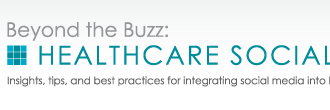Fifteen years ago, protecting patient confidentiality was a simple matter for physicians. Keep your voice down in restaurants and elevators, make sure the door is closed when you speak on the telephone, and guard your patients’ paper medical records like a mother hawk.
Fifteen years ago, protecting patient confidentiality was a simple matter for physicians. Keep your voice down in restaurants and elevators, make sure the door is closed when you speak on the telephone, and guard your patients’ paper medical records like a mother hawk.
 Social media has changed that. Two weeks ago, a physician was fired from a Rhode Island hospital and cited for ‘unprofessional conduct’ by the state medical board after she posted information to Facebook that could be used to identify a patient. She did not name the patient, but included information about the patient’s unusual condition that would have allowed unauthorized third parties to identify the patient if they wanted to.
Social media has changed that. Two weeks ago, a physician was fired from a Rhode Island hospital and cited for ‘unprofessional conduct’ by the state medical board after she posted information to Facebook that could be used to identify a patient. She did not name the patient, but included information about the patient’s unusual condition that would have allowed unauthorized third parties to identify the patient if they wanted to.
The physician deleted her Facebook account and will attend a CME course to help her get clear on patient-physician confidentiality issues in the age of social media.
This physician is not alone. A recent review by Lagu and colleagues showed that 17% of blogs by health professionals included information that could be used to identify a patient or the patient’s physician. Three blogs contained identifiable pictures.
Nothing in their training or their experiences in the era before social media could prepare physicians for the sudden, profound impact it has had on their practices. These new tools are disrupting decades-old codes of conduct, not to mention the very processes by which care is rendered and providers communicate with patients and their colleagues.
To be clear, I firmly believe that physicians and all health professionals should aggressively adopt social media to enhance the care and support they give to patients. This includes providers who have yet to get in the game. At a minimum, providers are obligated to join the fray because their patients use these sites to find information, seek support and make health decisions for themselves.
Beyond this defensive rationale, social media can improve the quality of care and the overall patient experience with care systems. For example, many providers use Facebook pages to create a ‘personality’ for their practices. For those with unique skills or service offerings, social media helps them get the word out. The tools afford providers great ways to connect with colleagues and perform public health outreach. Social media also lets physicians help patients access support networks (a difficult task in the pre-social media age for homebound or geographically isolated patients, or those with rare diseases).
That said, social media poses vexing challenges for physicians. Should I accept friend requests from patients on Facebook? Should I trust advice from unknown physicians on Sermo? What if I miss a patient’s tweet saying that his shortness of breath has worsened?
In some ways, these challenges are most difficult for the youngest physicians. They grew up in the era of social media. They are intimately familiar with it, but in many cases they have become ensnared by it. They have long-since created personal social histories online and exposed them to hundreds, if not thousands of acquaintances. Their challenge is to manage this archive while forging identities as professionals.
A recent study by scientists at the University of Florida revealed the magnitude of their challenge. In the study, only 37% of medical students with profiles on Facebook had assured their entries were private. More than half had shared details about their sexual orientation, relationship status and political opinions online. In addition, 7 of 10 randomly-selected students had posted photos of themselves drinking alcohol, and 3 had joined groups that were either sexist (“Physicians looking for trophy wives in training”) or racially charged (“I should have gone to a blacker college”).
The problem is widespread. At least 60% of all medical schools have reported incidents in which medical students posted unprofessional content online, according to a recent study. Thirteen percent of the schools reported violations of patient confidentiality, as was the case with the Rhode Island physician. Other common offenses included the use of profanity (52%) and discriminatory language (48%), and the display of drunkenness (39%) and lewd behavior (38%). And since this study captured only the incidents that came to the attention of medical school deans, it reflects the tip of the iceberg.
Conclusion of Part I
When it comes to social media in medicine, the genie is indeed out of the bottle. Social media has grown explosively both inside and outside health care, and it is here to stay. It can be leveraged to improve care, but it seductively blurs personal and professional boundaries that had previously been easy to maintain, risking patient confidentiality and threatening the careers of those who misuse it.
Then again, the physician’s struggle to maintain a professional identity is as old as the profession itself. And this isn’t the first time physicians have had to incorporate innovation in their daily lives.
On Wednesday, I’ll present some ’best practices’ for social media use by physicians. In fact, I’ll start writing that piece right after I check my Twitter feed and update my status on Facebook.






